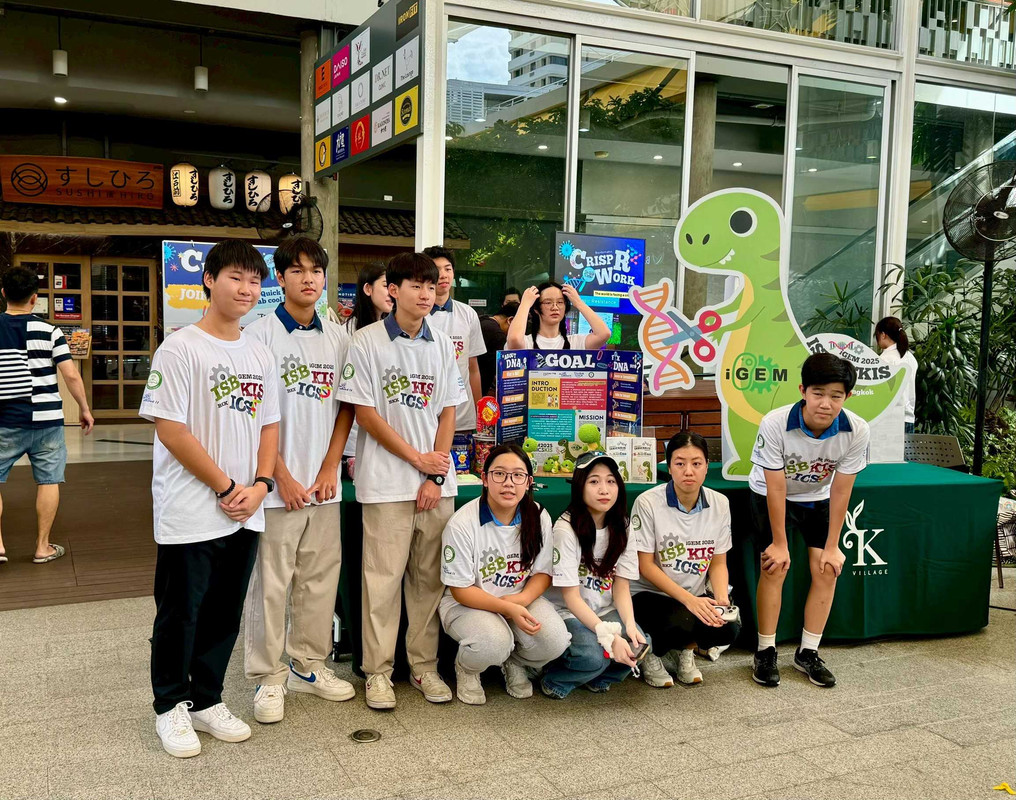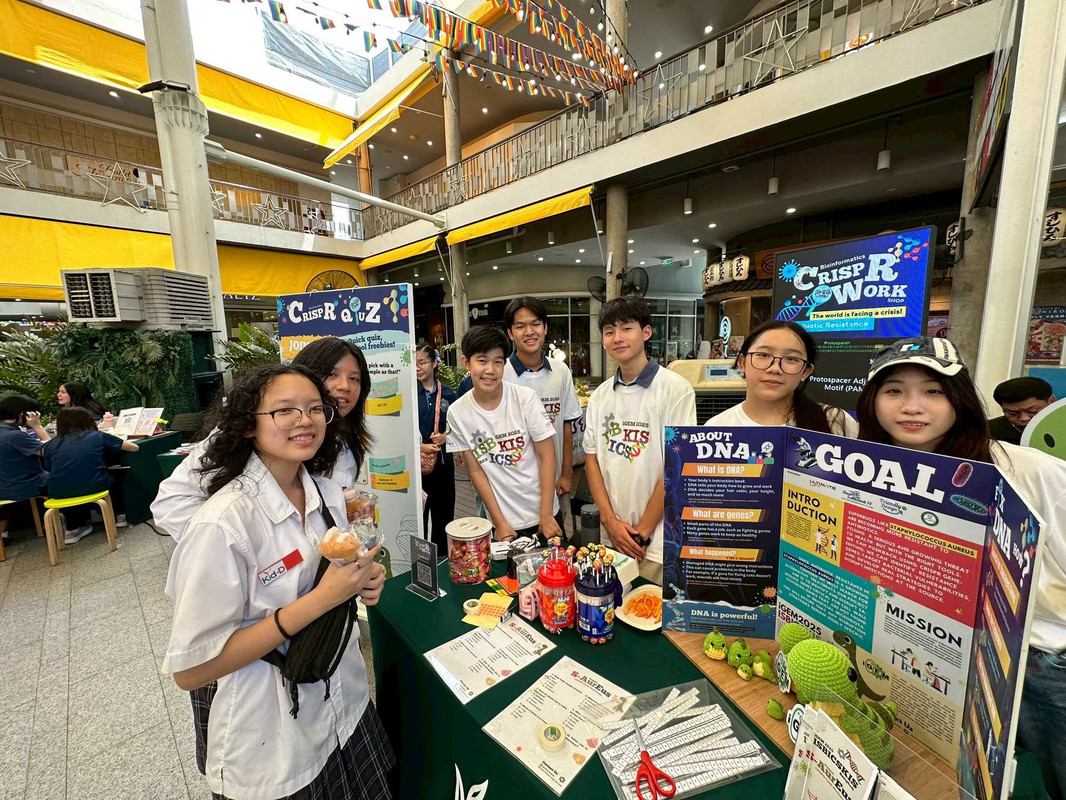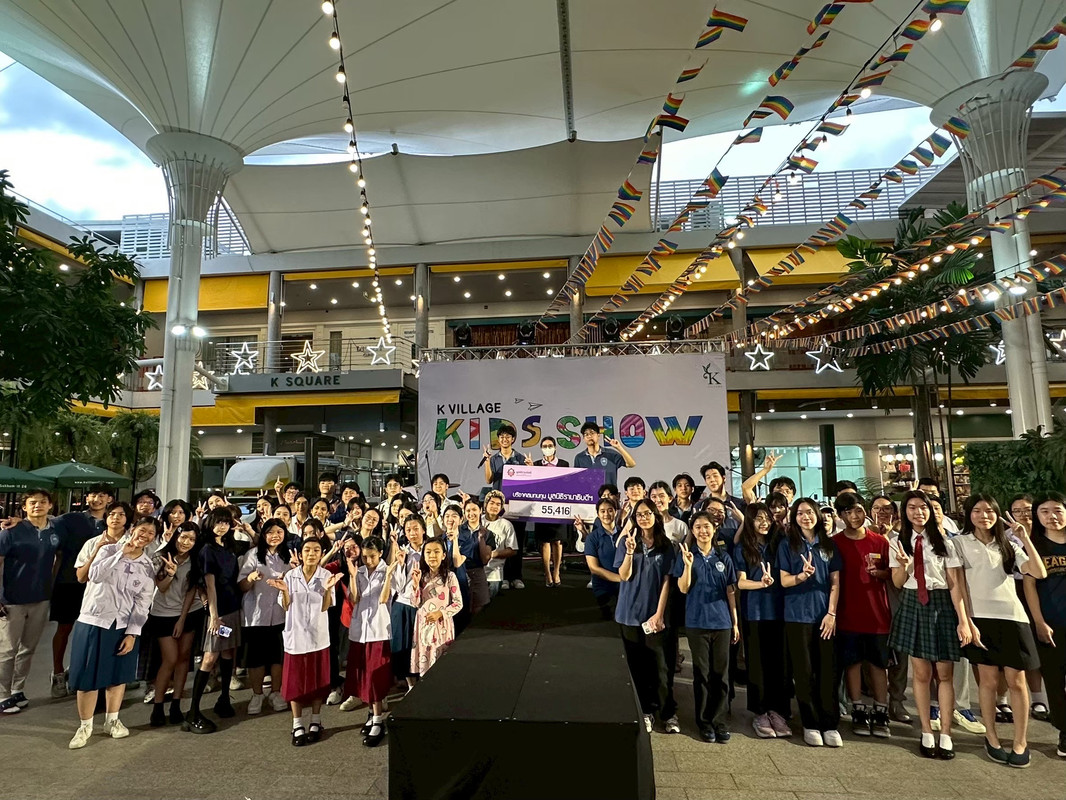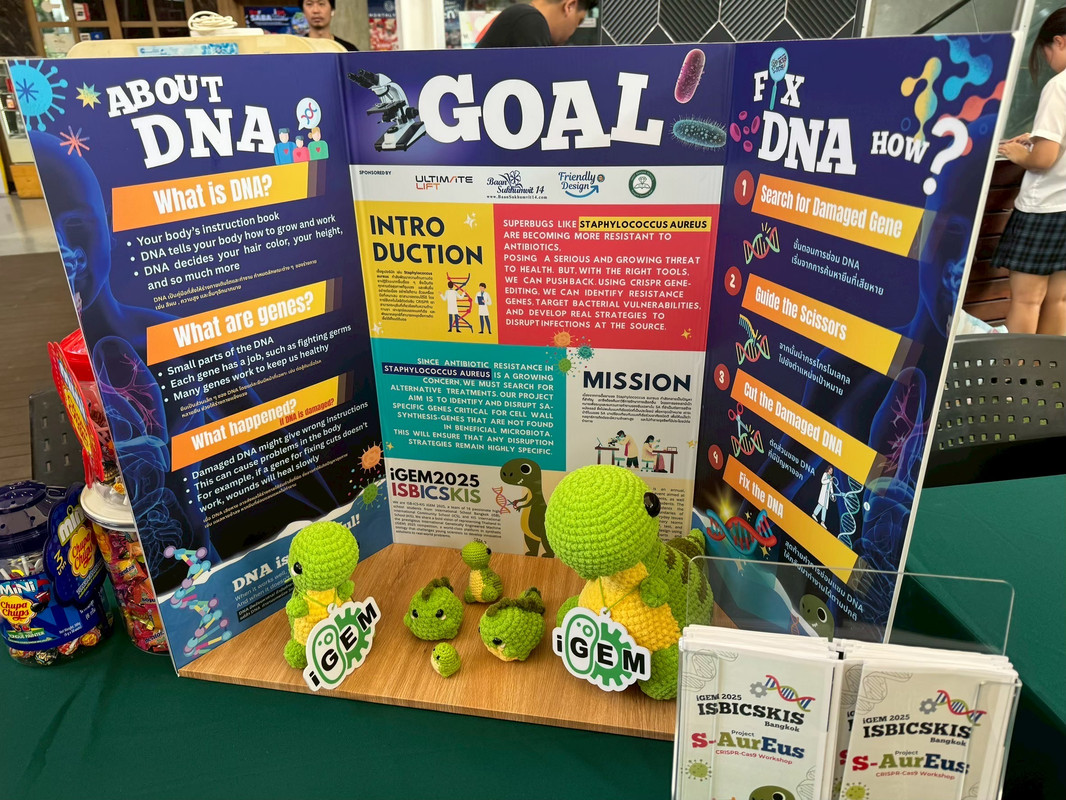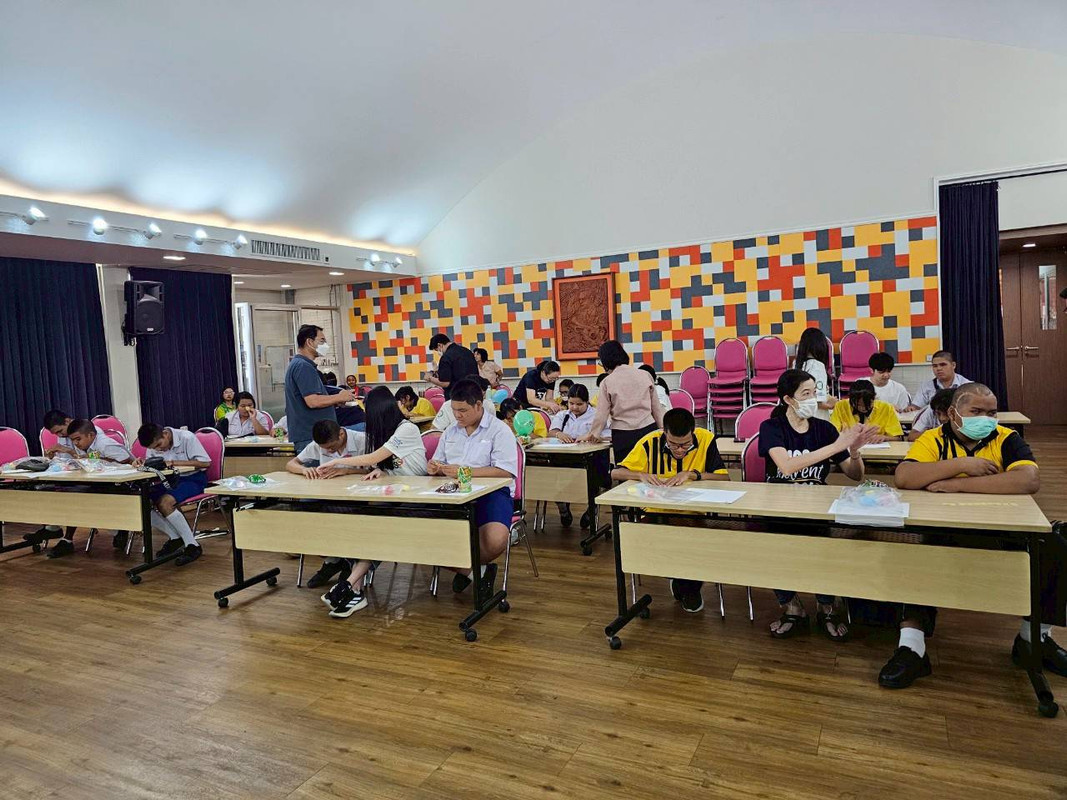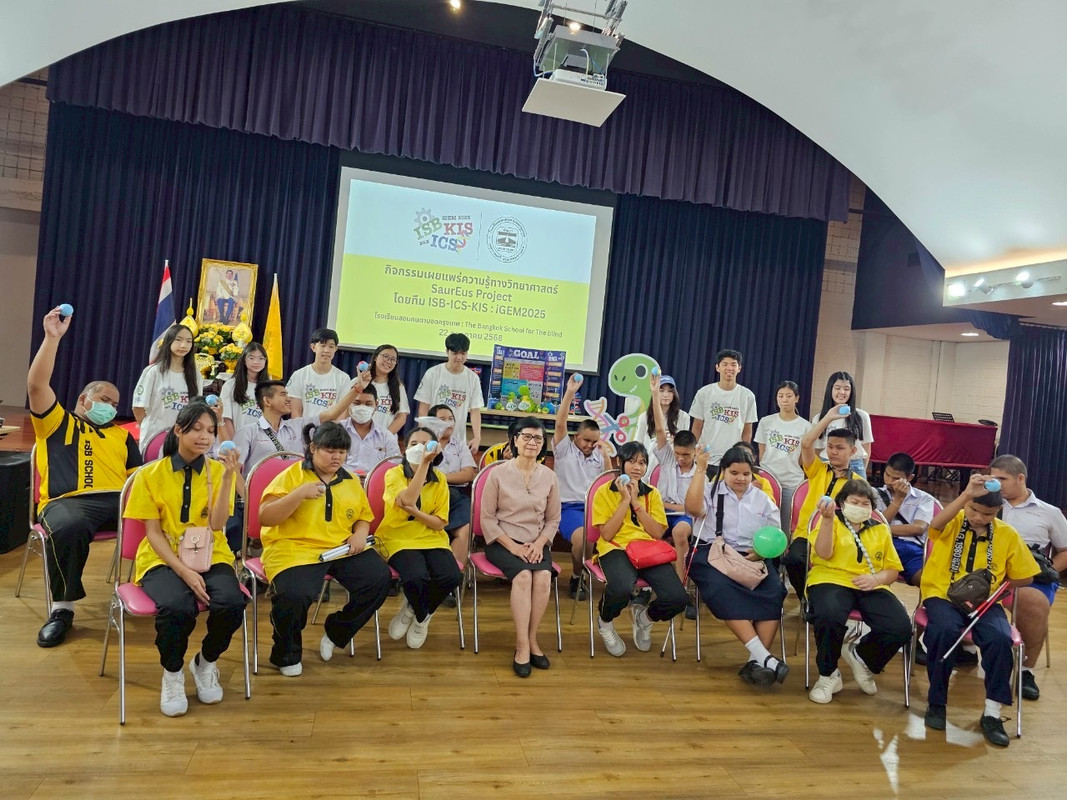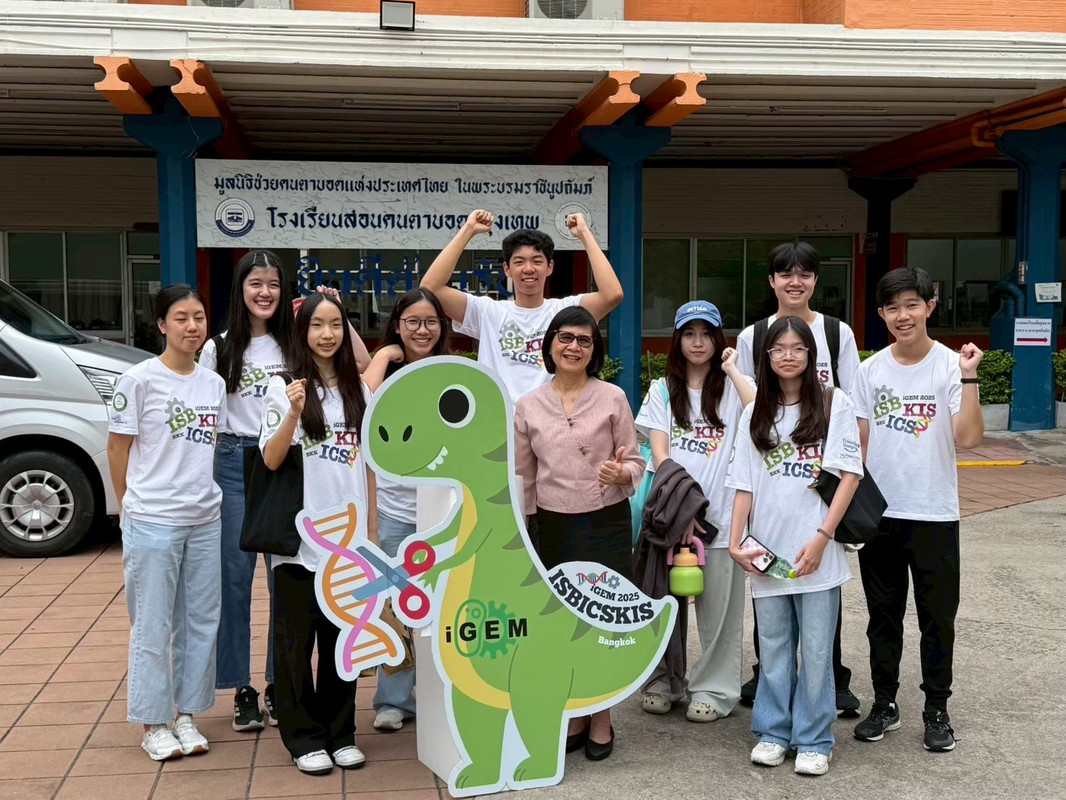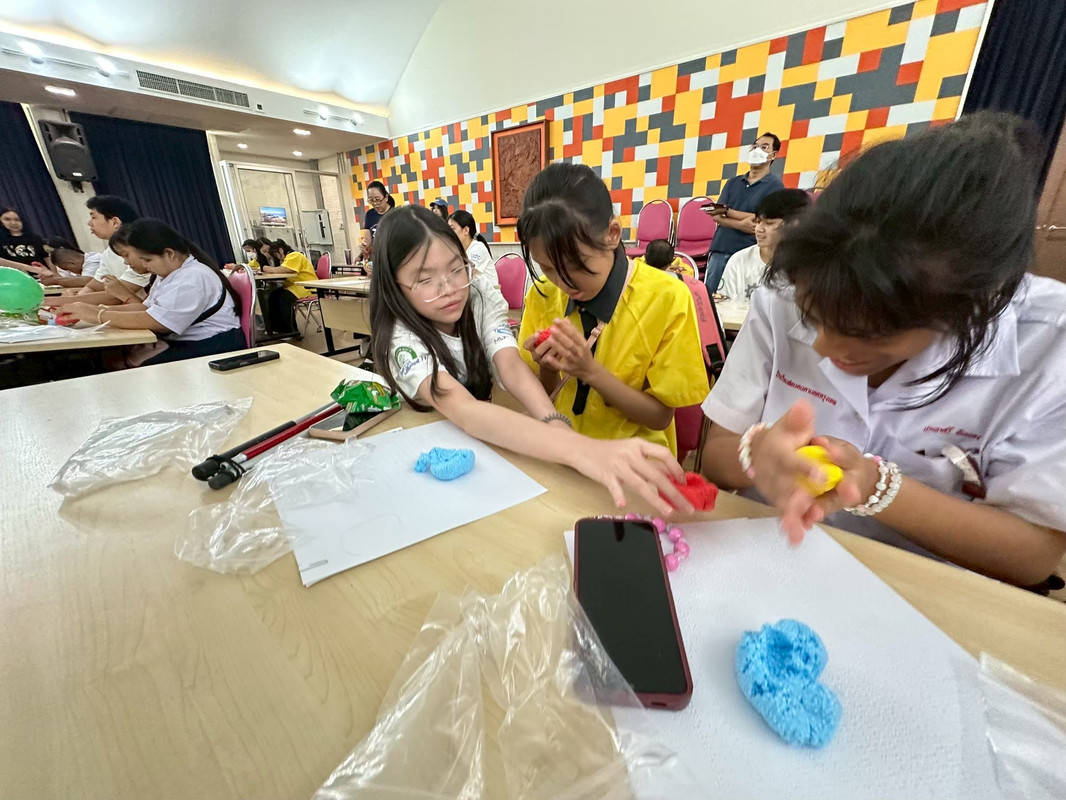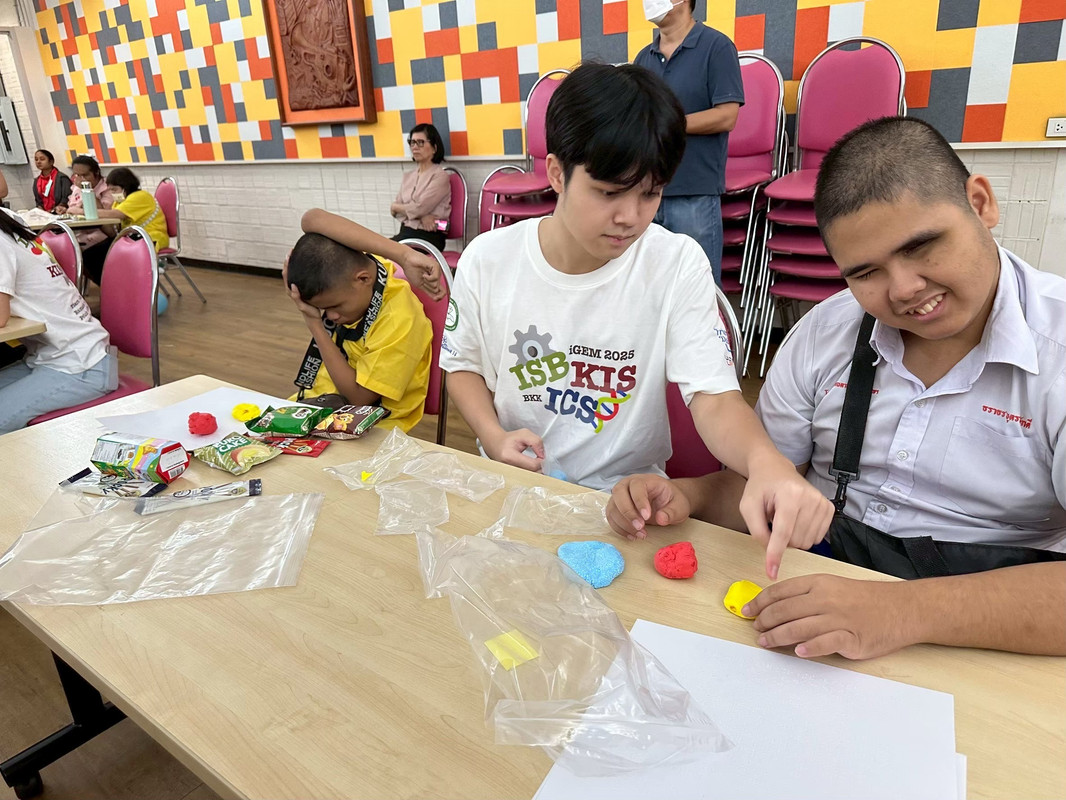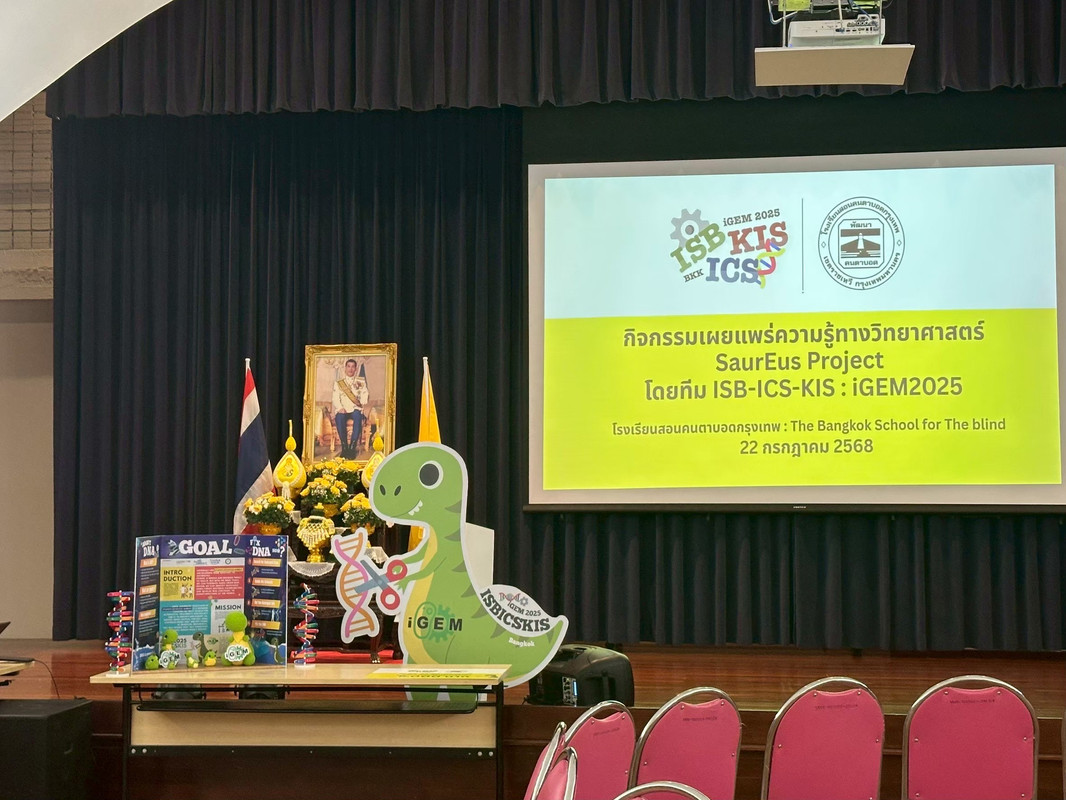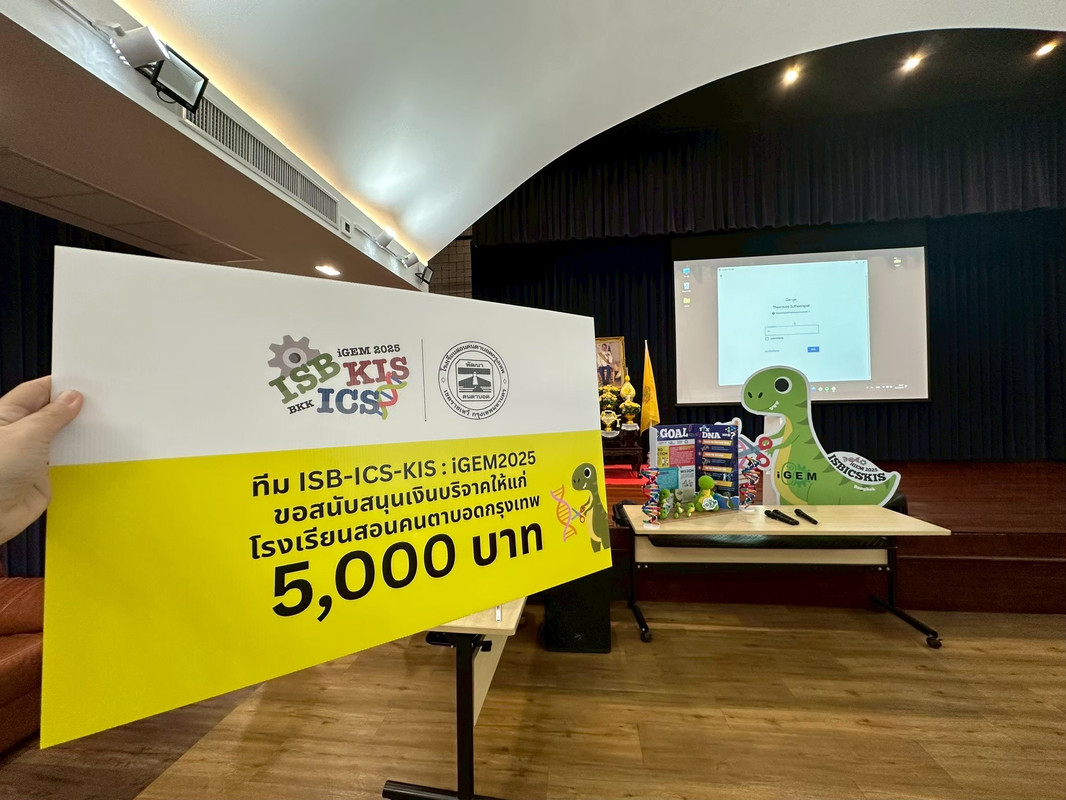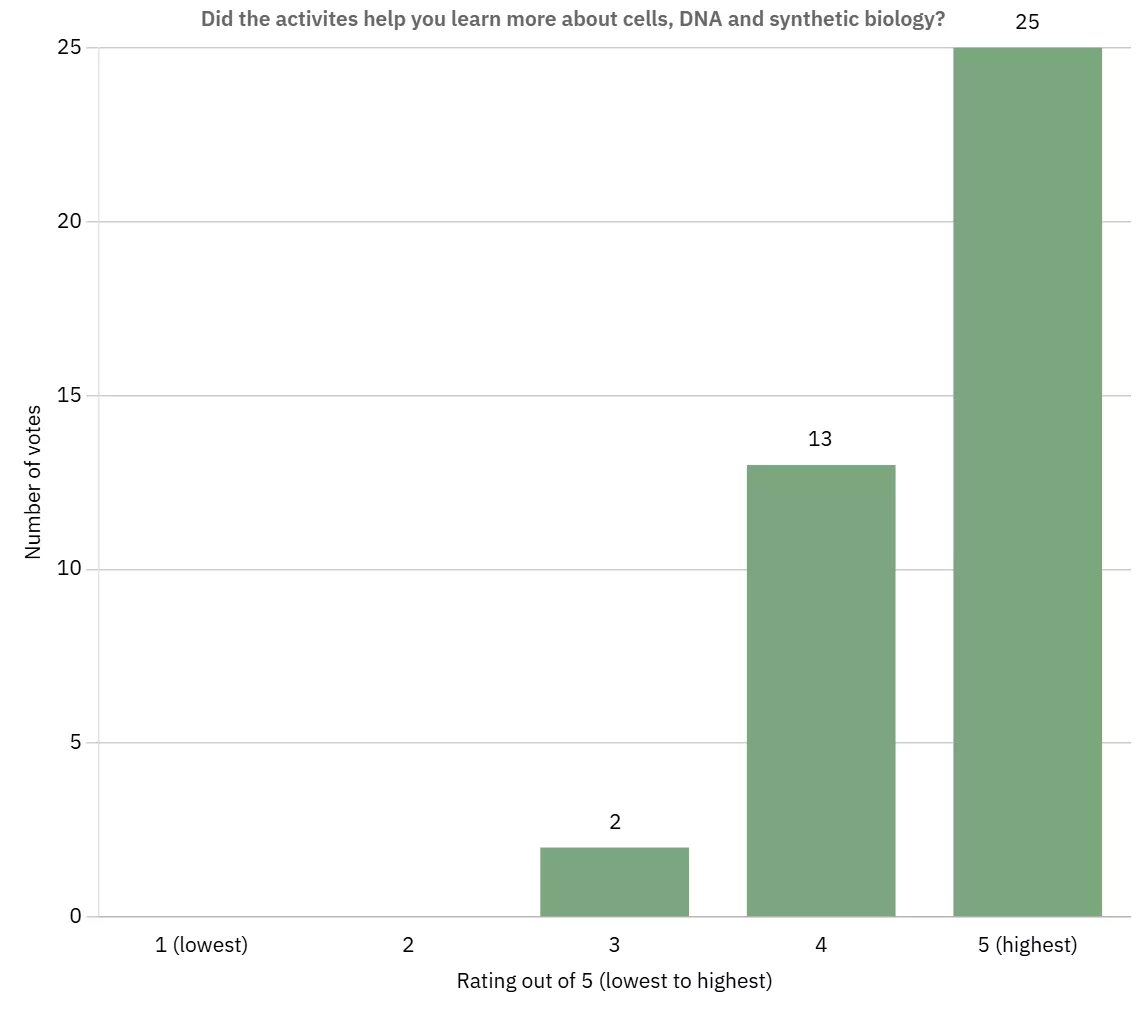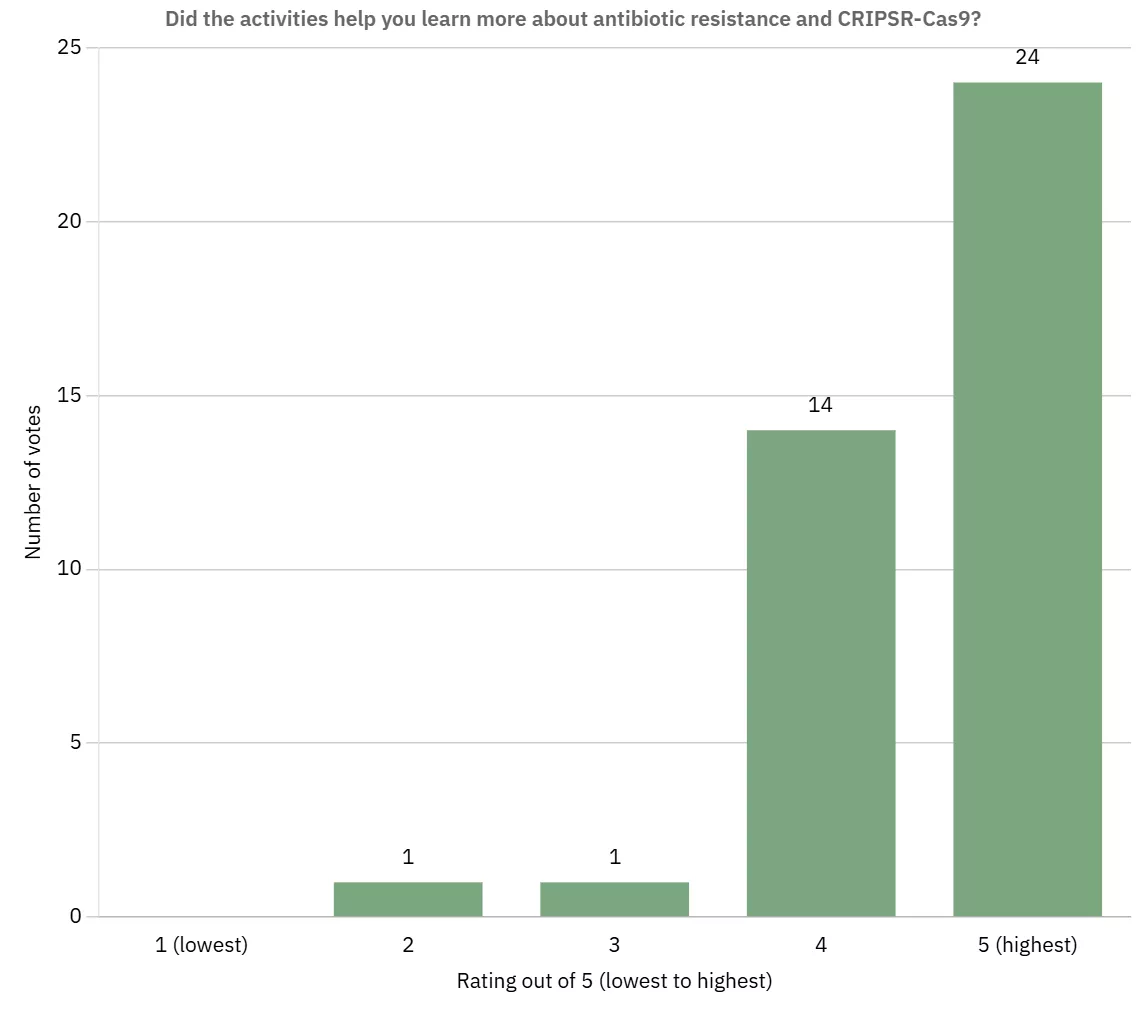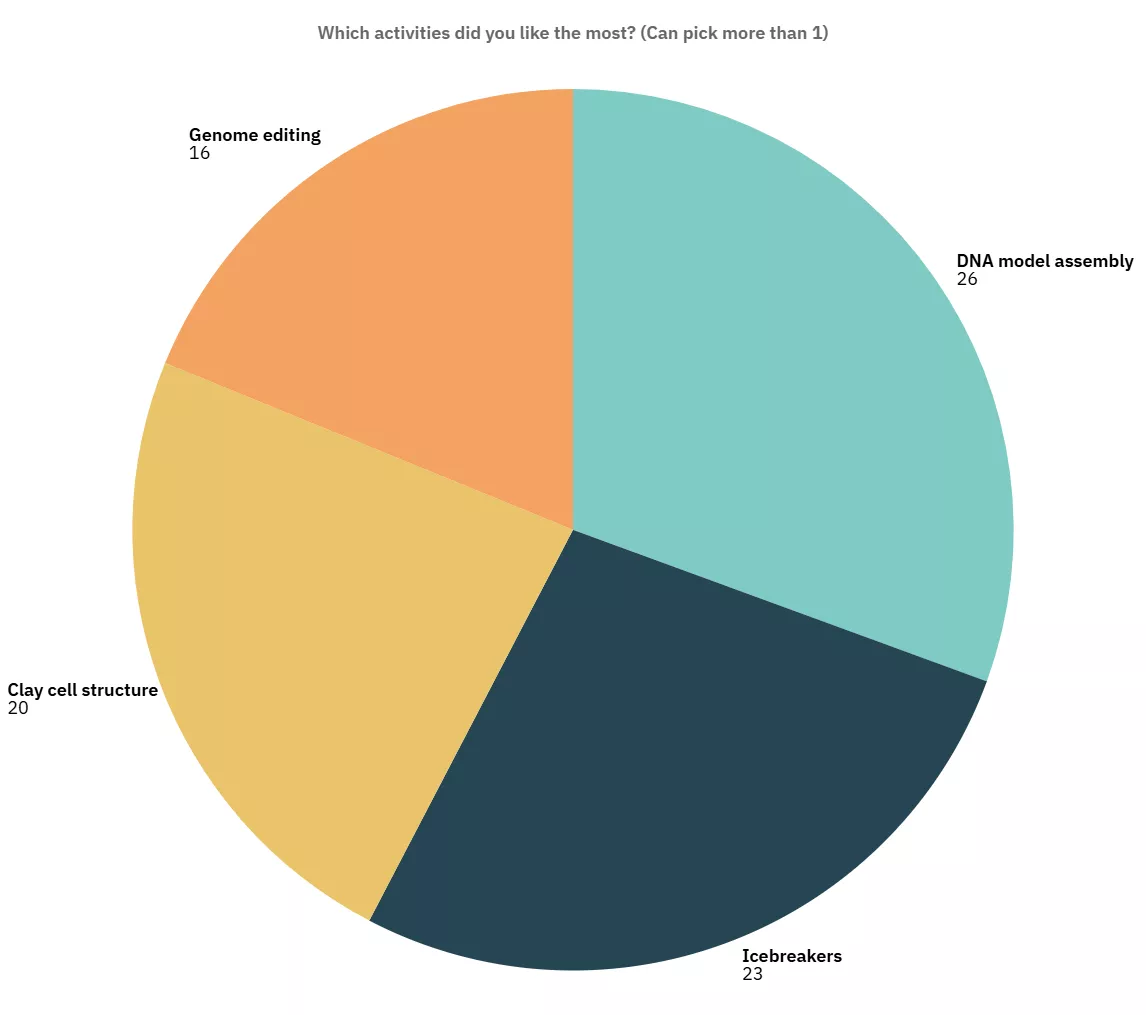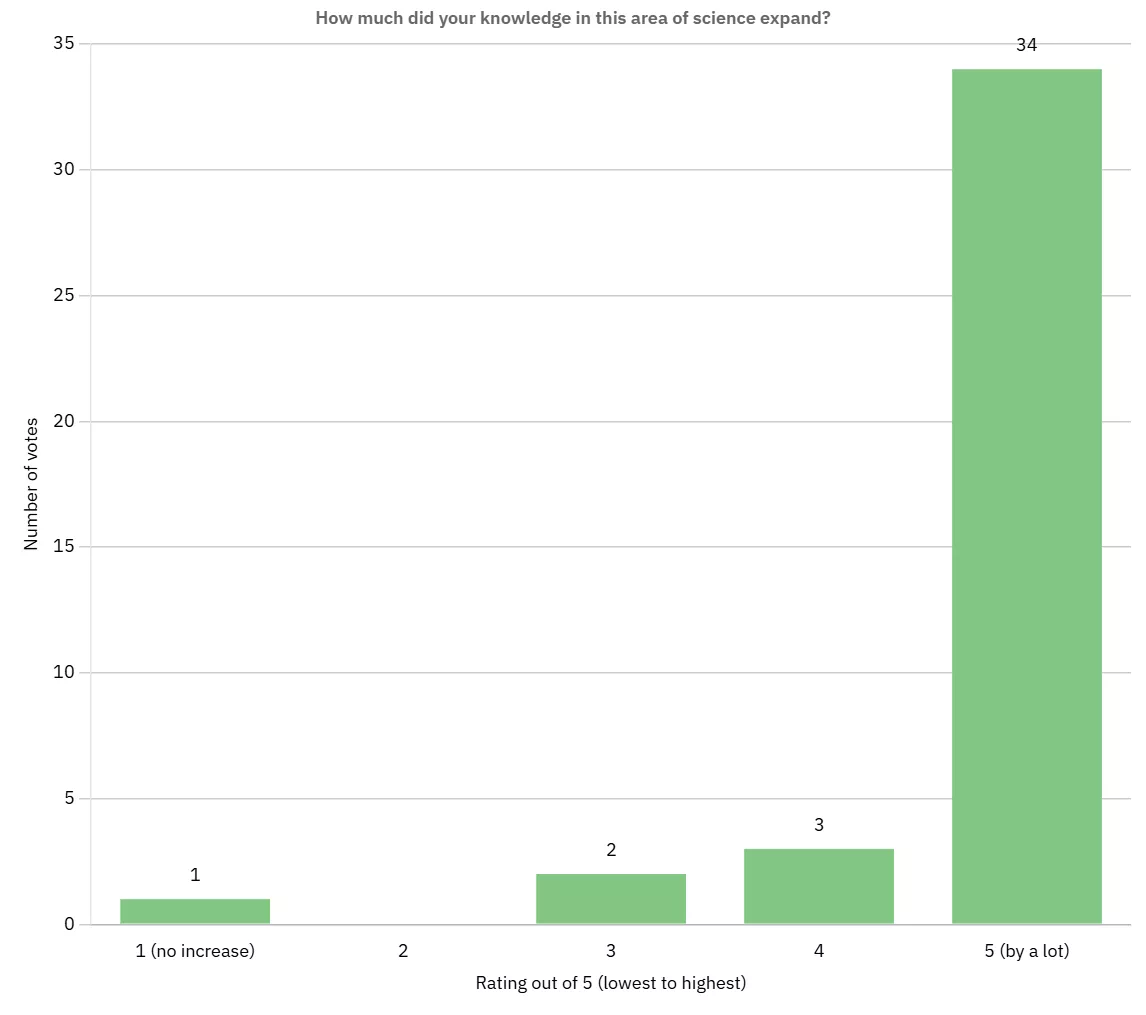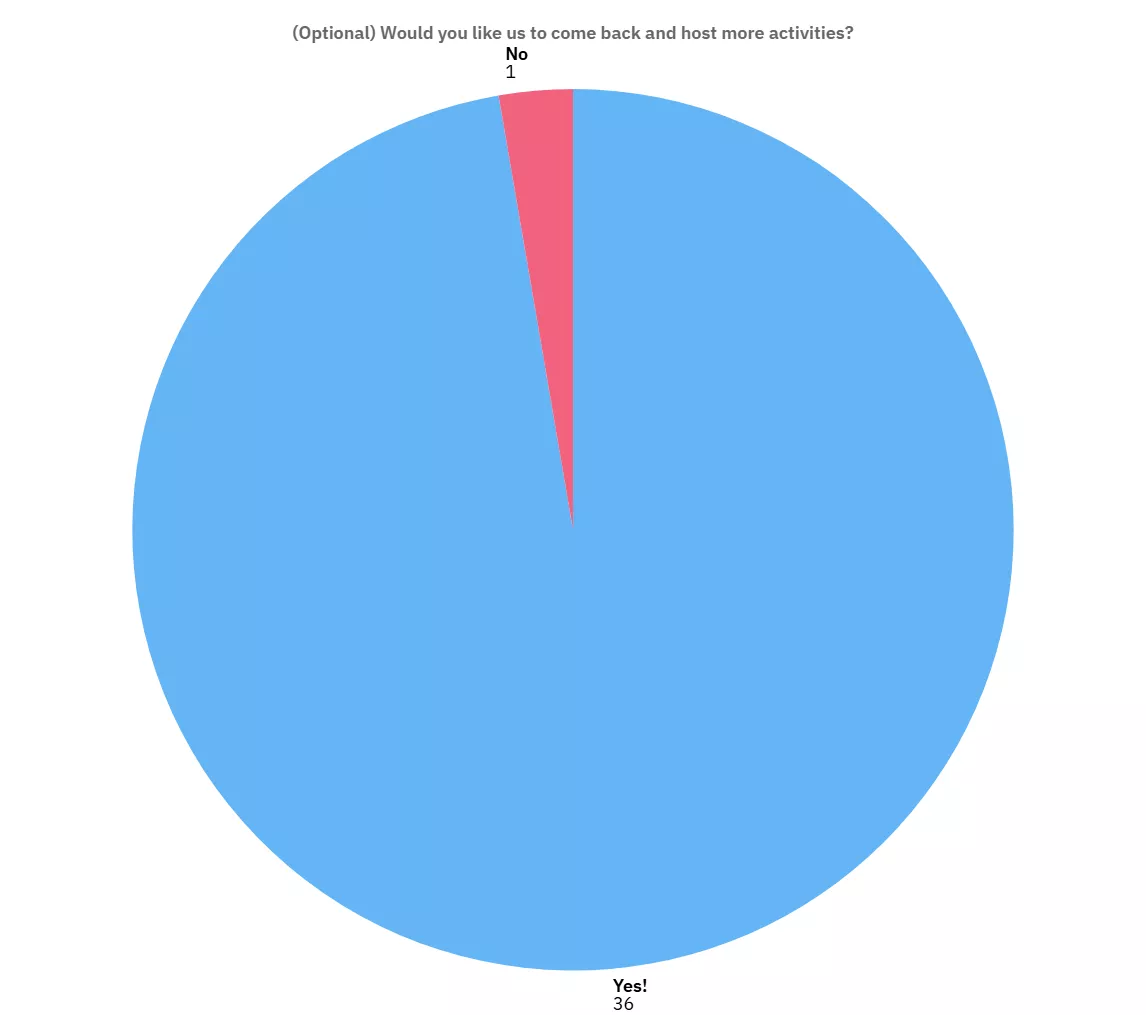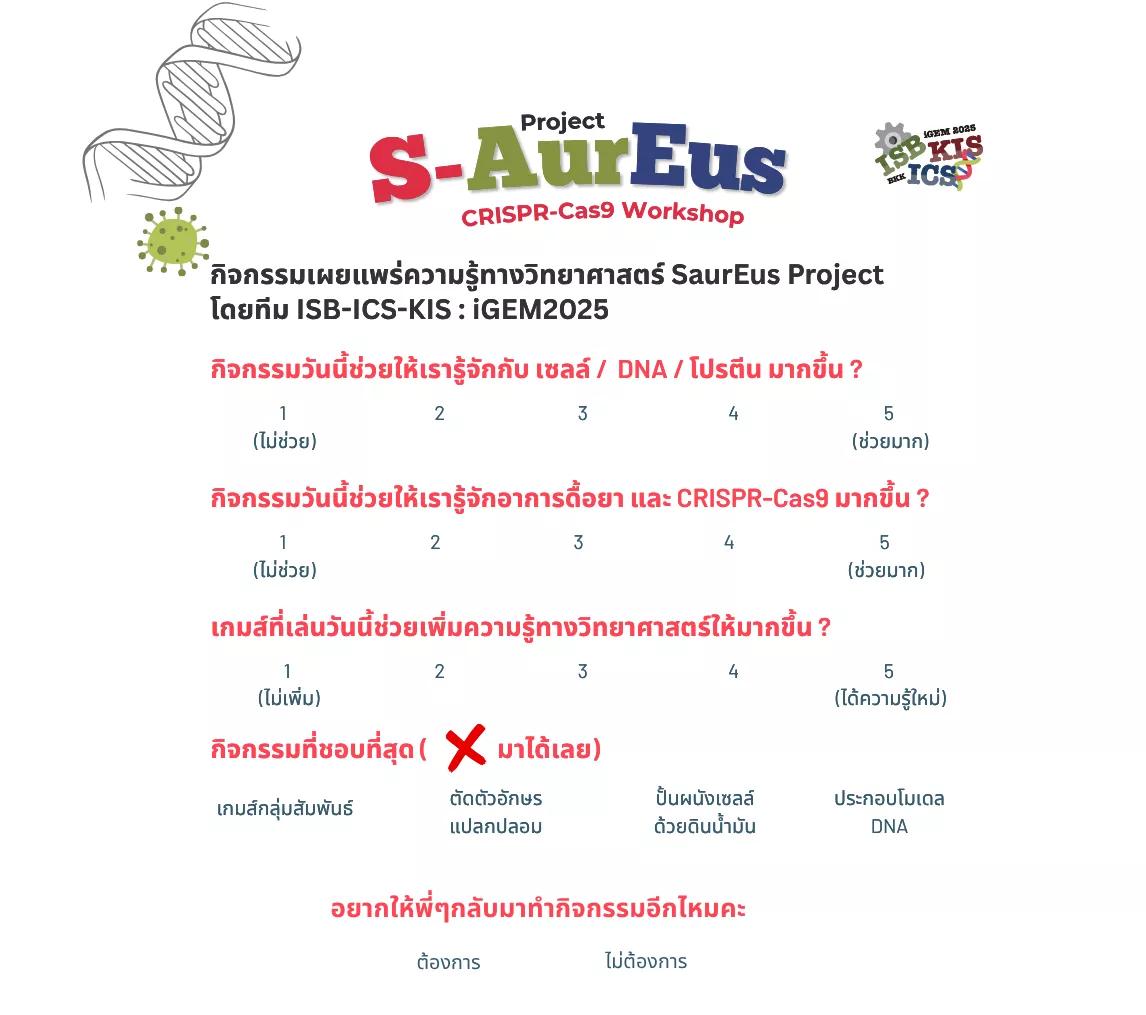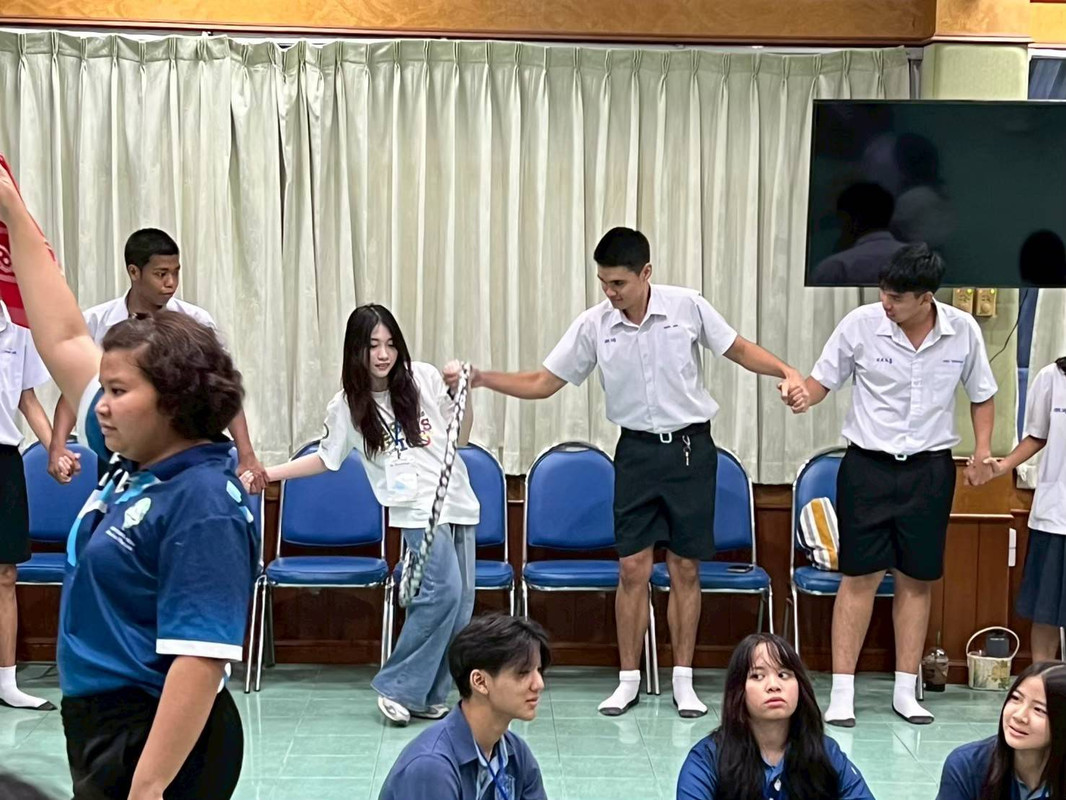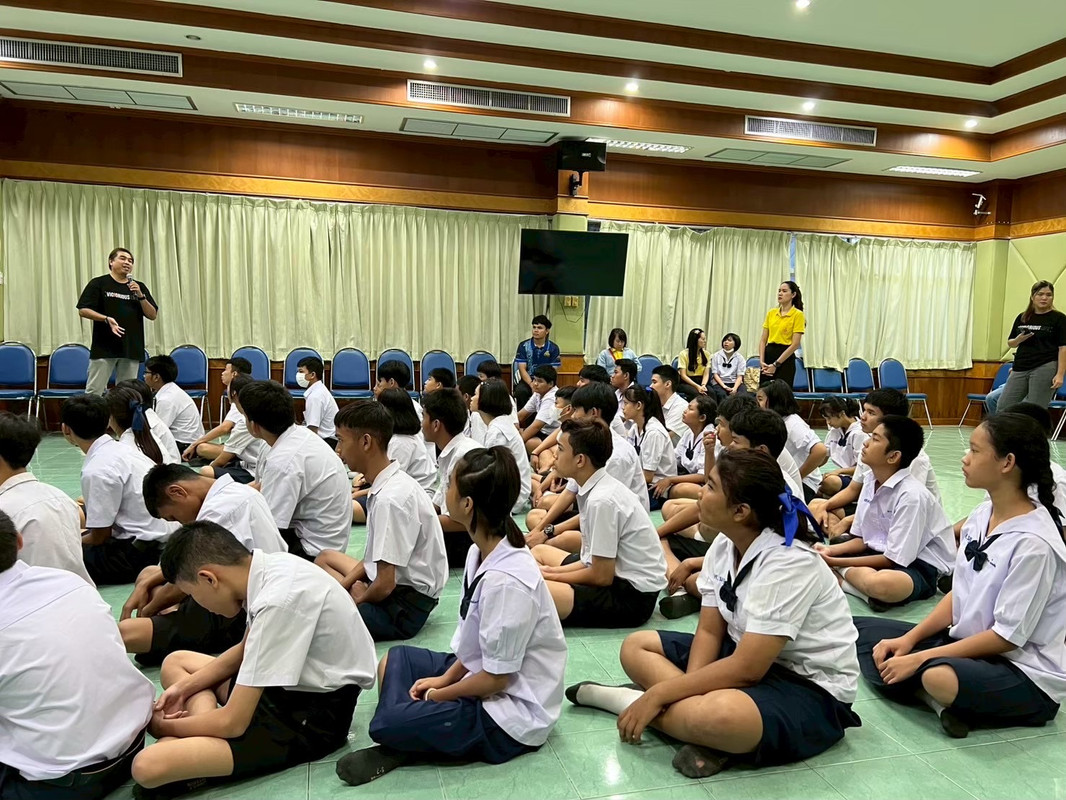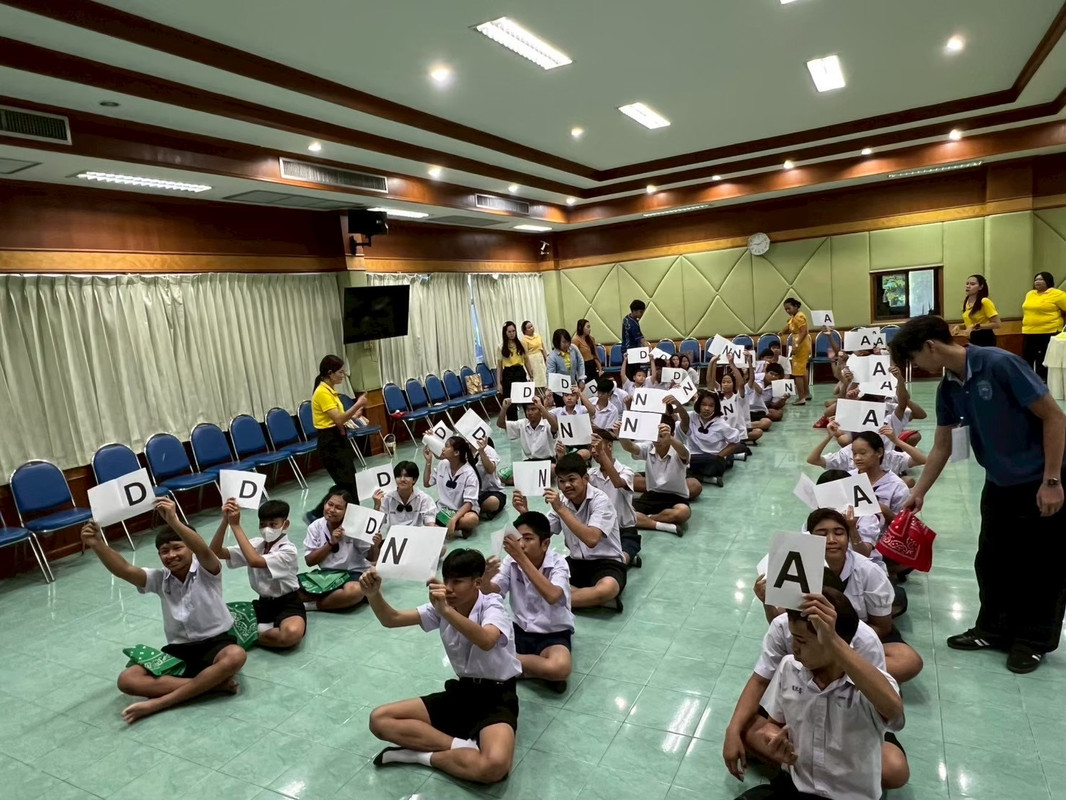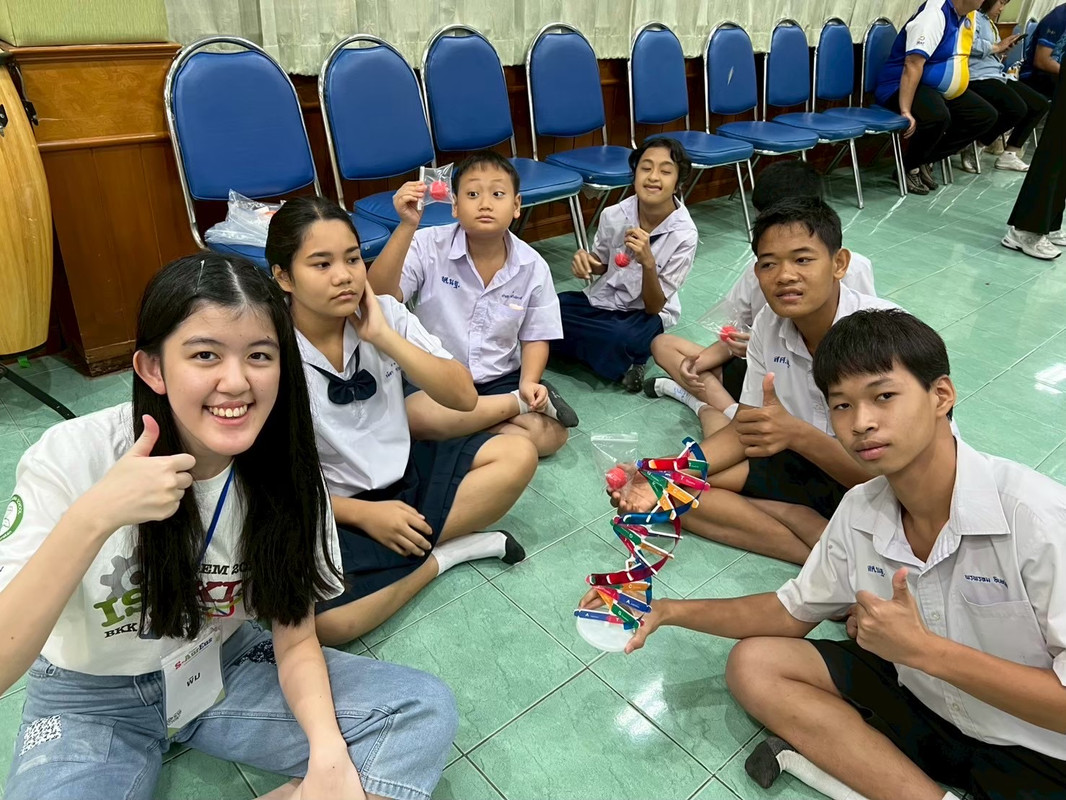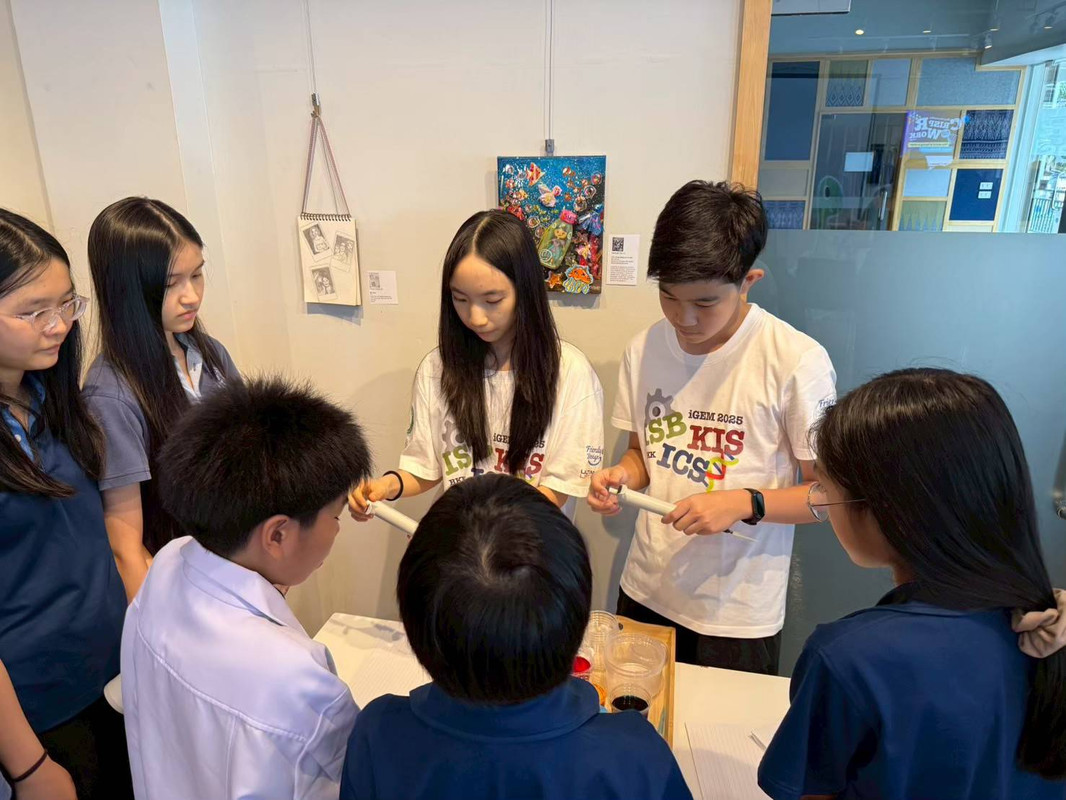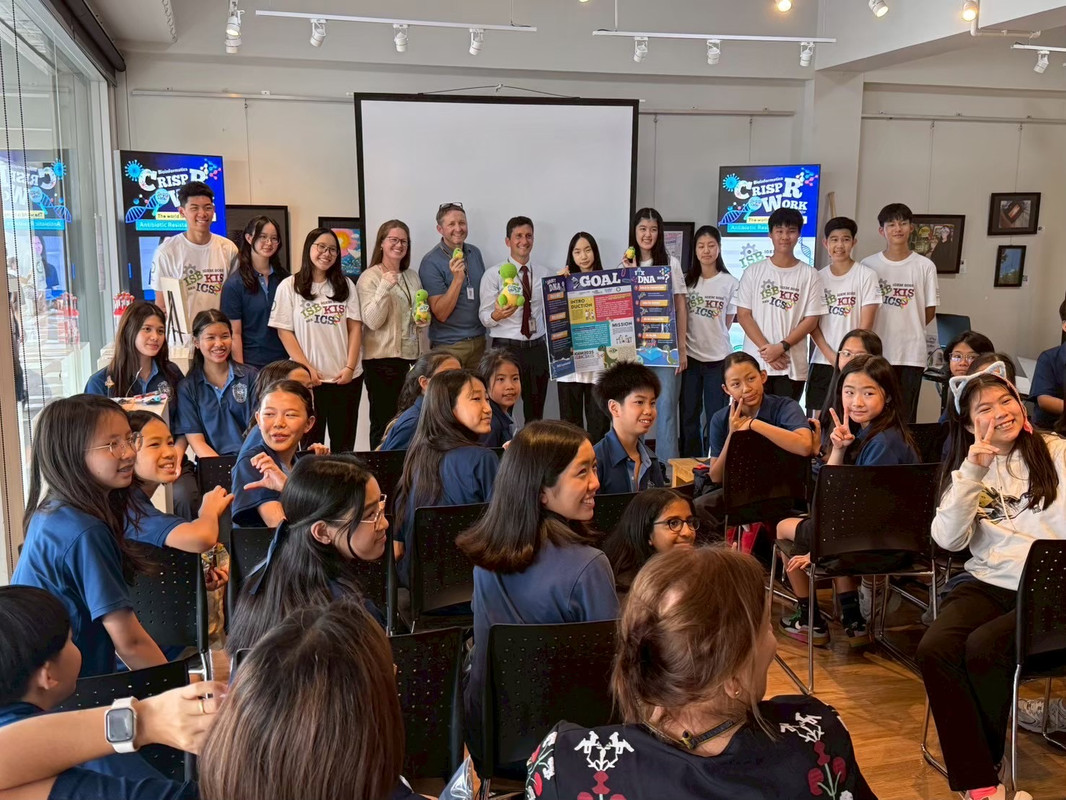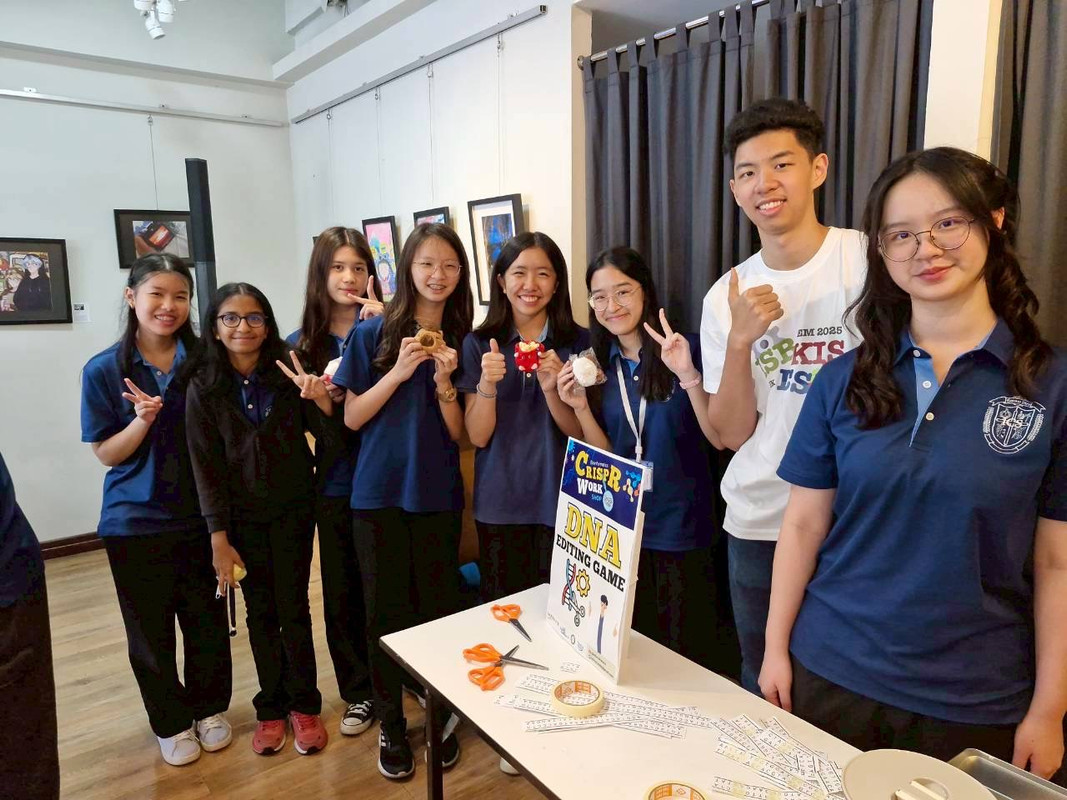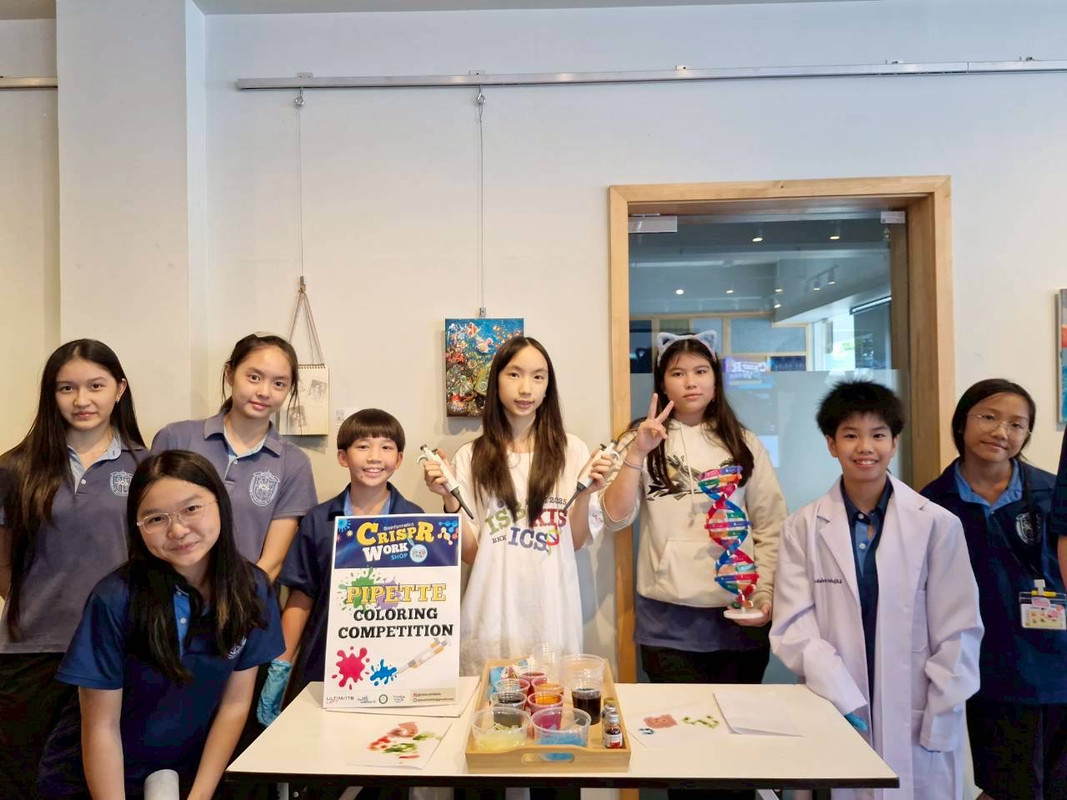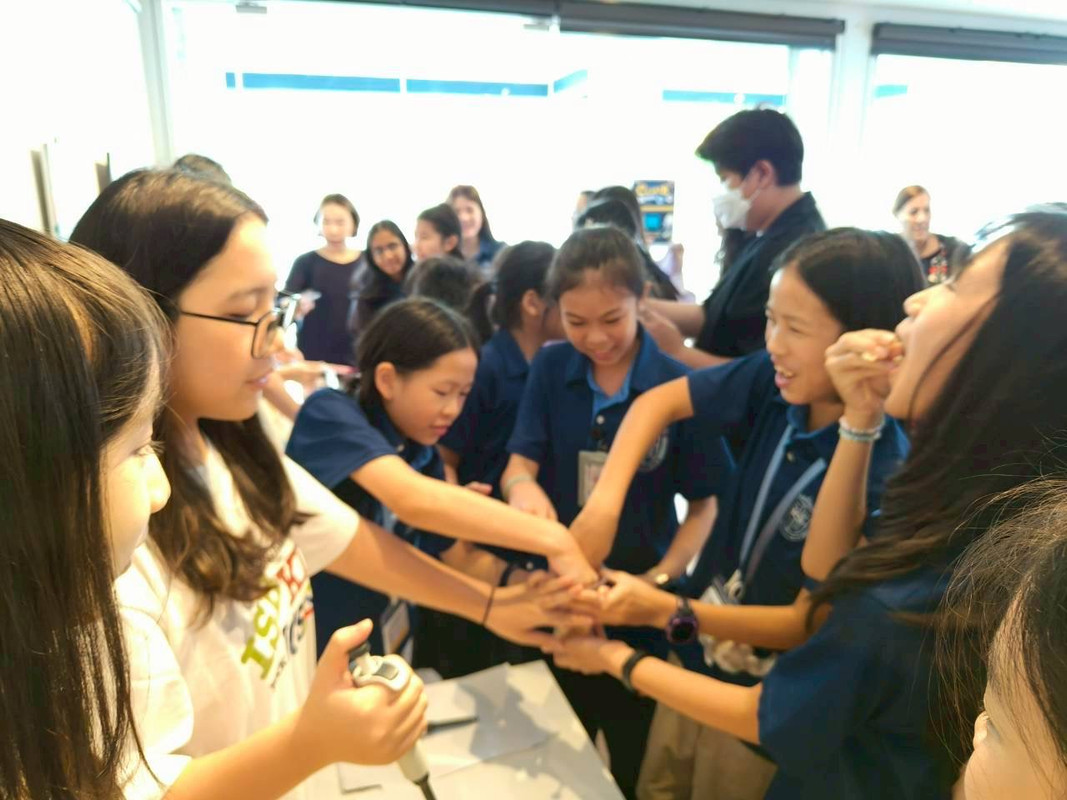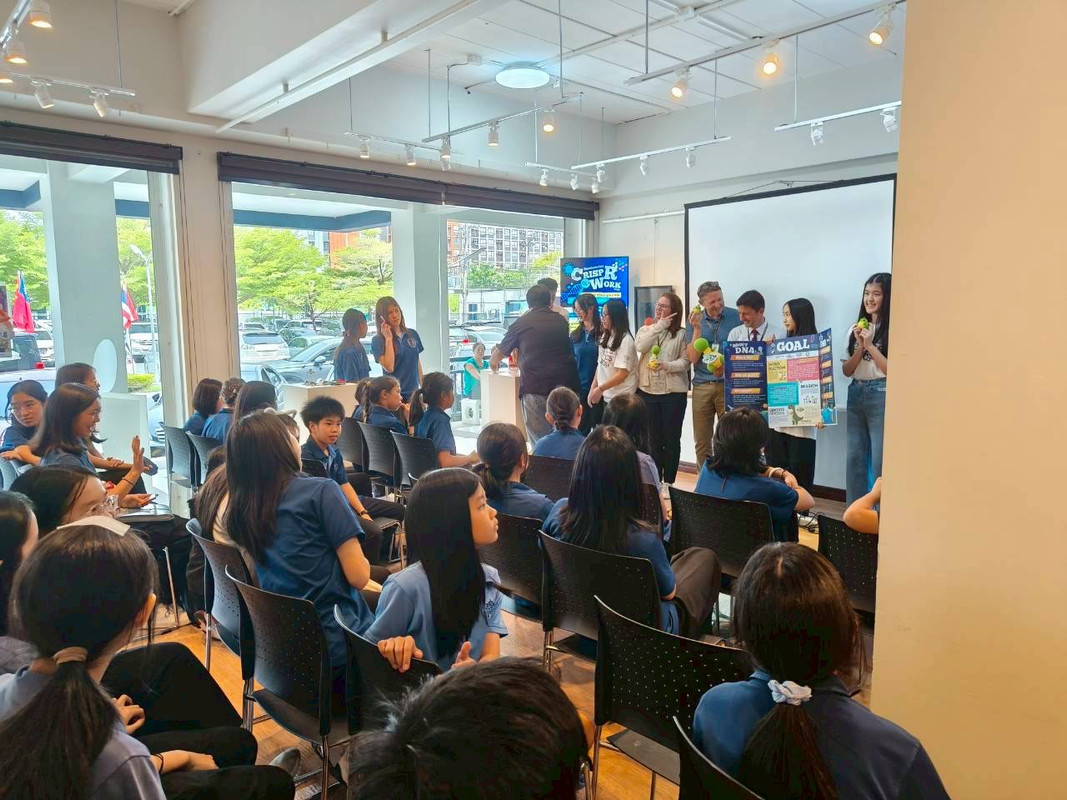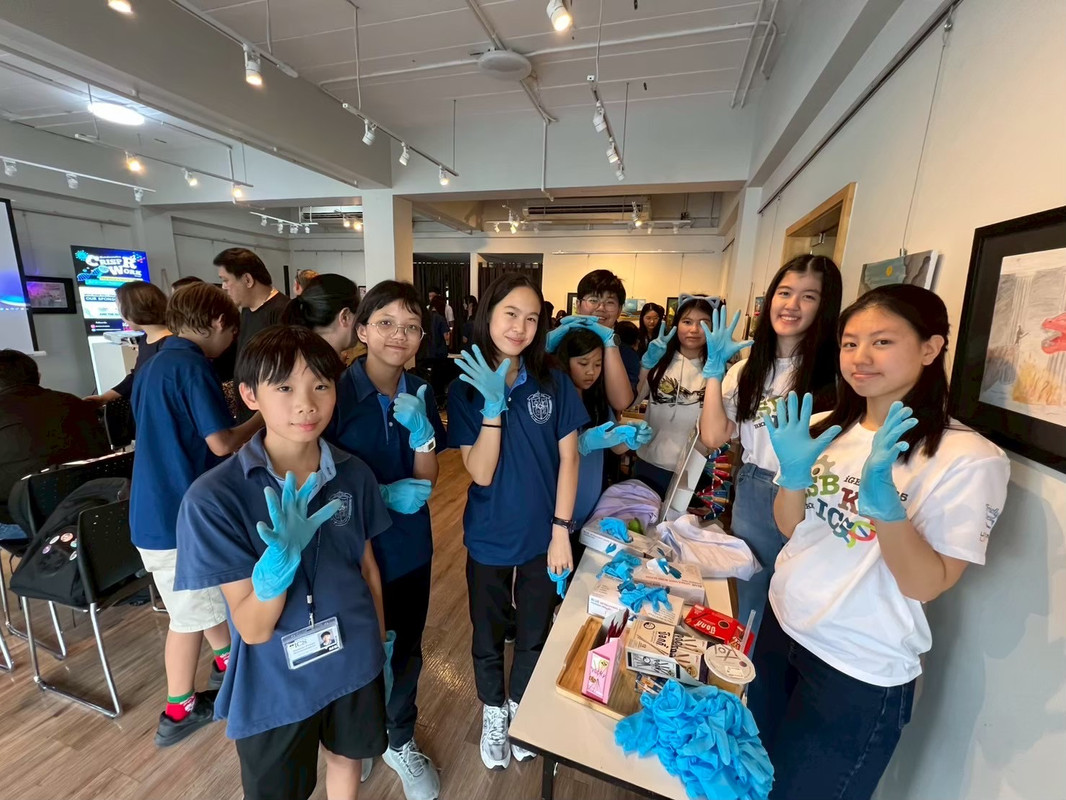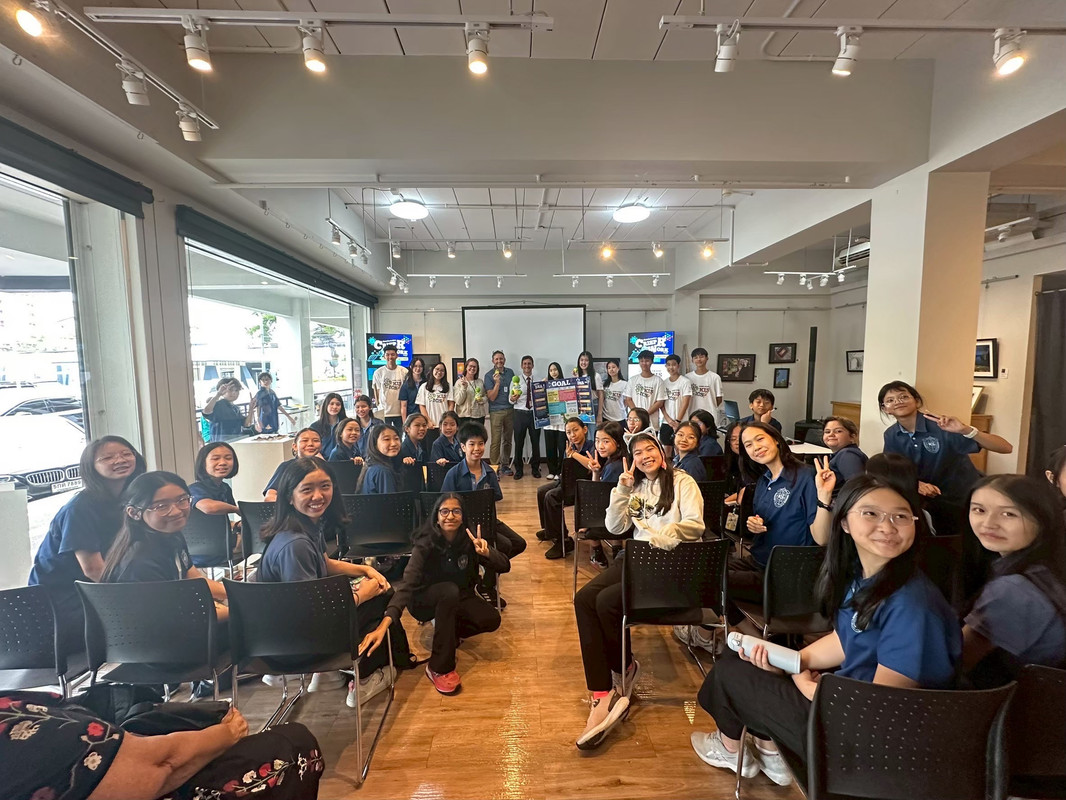Education
Overview
According to the Thai Office of National Higher Education Science Research and Innovation Policy Council, synthetic biology in Thailand is still emerging, and many young people have little to no exposure to it in their education. At the same time, antibiotic resistance is a rapidly growing global health crisis, yet it is often seen as either too technical or too distant to affect everyday life. Through conversations with teachers, students, and parents, our team recognized both a knowledge gap and untapped curiosity: while synthetic biology and antimicrobial resistance were unfamiliar, students showed great enthusiasm when science was presented in accessible, interactive, and inclusive ways.
Motivated by this, we committed ourselves to designing inclusive educational programs that introduced synthetic biology to diverse Thai youth. We envisioned education not simply as information transfer, but as a platform for mutual learning and dialogue about how science connects to health, society, and ethics. By making our activities barrier-free and adaptable to different needs, we aimed to ensure that no student was excluded from engaging with science.
In executing our outreach, we upheld several values:
- Accessibility: Education should be barrier-free, inclusive and adapted to different abilities, ensuring equal opportunities for blind and deaf students to learn science
- Dialogue: Education should create space for two-way conversations, where students can reflect on the societal and ethical implications of synthetic biology
- Sustainability: Activities should be designed so that resources and lesson plans can be reused by other teachers, iGEM teams, or organizations in the future
- Empowerment: Students should leave not just with knowledge, but with the confidence that they can contribute to science and global challenges
Target Audience
Our primary target audience was Thai youth, a demographic we see as central to the future of science and society. Within this broad group, we reached out to:
- General Thai youth
- International School Students
- Youth with hearing and visual impairments
Kid-D Festival at K-Village, Sukhumvit
On June 21st, our team hosted an educational booth to raise awareness about gene editing and its potential societal benefits. We created an engaging game where children could learn the basics of CRISPR-Cas9 and win small prizes, making complex science approachable and fun. Alongside education, we used the opportunity to raise funds for a meaningful cause, collecting donations for victims of the Rama Hospital fire incident. This activity reflected our core values of combining public science outreach with social responsibility, ensuring that our work contributes positively to both knowledge-sharing and community welfare.
- Objective: Make gene editing approachable and engage passerbys
- Activity: We created an interactive game teaching the basics of CRISPR-Cas9 and science in general, with prizes for participation
- Impact: Children and adults gained a foundational understanding of gene editing while engaging in playful, hands-on learning.
- Community Contribution:
- Around 200+ booth visitors (all ages) participation
- A 70,000 baht donation was collected for victims of the Rama Hospital fire, integrating social responsibility with science outreach.
Key Takeaways
This event showed us that science outreach can be both playful and impactful when designed with accessibility in mind. By translating complex CRISPR-Cas9 concepts into a simple game, we saw firsthand how children and adults alike could quickly grasp foundational ideas in synthetic biology. At the same time, integrating a fundraising element reminded us that science engagement can also serve broader social good, connecting education with empathy and responsibility.
Bangkok School of the Blind (โรงเรียนสอนคนตาบอดกรุงเทพ)
On the 22nd, we visited the Bangkok School for the Blind to make gene editing concepts accessible to visually impaired students. Using tactile teaching tools and clear verbal explanations, we introduced the structure of bacteria and DNA, as well as the mechanism of CRISPR-Cas9, ensuring that students could engage with the material through non-visual sensory learning. The activities were hands-on and interactive, promoting inclusivity in science education. In addition to the lesson, we donated 5,000 baht to the school, reinforcing our commitment to supporting underrepresented communities and ensuring equitable access to STEM learning opportunities.
- Objective: Ensure visually impaired students could access core concepts in synthetic biology.
- Activity: Using tactile teaching tools, verbal explanations, and 3D models, we taught DNA structure, bacterial anatomy, and CRISPR-Cas9 mechanisms.
- Impact: Students engaged through non-visual senses, enabling comprehension of complex scientific topics.
- Community Contribution:
- Donated 5,000 baht to support the school
- Gave the school copies of our braille informative texts about CRISPR-Cas9 and DNA to aid with science education
Key Takeaways
Adapting synthetic biology education for visually impaired students with learning disorders reinforced the importance of multi-sensory teaching. We learned that concepts like DNA structure or CRISPR can be taught effectively without reliance on visuals or complex explanation, provided that tactile and descriptive tools are employed. This experience taught us to think creatively about inclusivity in science communication and emphasized that scientific education must meet learners where they are, not the other way around.
Nakhon Pathom School for the Deaf (โรงเรียนโสตศึกษาจังหวัดนครปฐม)
At the Nakhon Pathom School for the Deaf on August 1st, we adapted our science outreach program to be fully accessible to hearing-impaired students. Through visual demonstrations, sign language interpretation, and hands-on models, we taught the basics of CRISPR-Cas9, DNA structure, and bacterial anatomy. Students also participated in interactive clay modeling activities to reinforce learning. To evaluate the effectiveness of our workshop, we conducted surveys before and after the session to measure changes in understanding. The results (shown on the left) indicated that most of the students gained new knowledge about gene editing, bacterial structure, and DNA, with many expressing increased interest in science. To further support the school community, we also donated 5,000 baht. We believe that any type of language or sensory differences should not limit opportunities to engage with scientific knowledge and our project’s mission.
- Objective: Make gene editing concepts fully accessible to hearing-impaired students.
- Activity: Lessons with visual demonstrations, sign language interpretation, and hands-on clay modeling to teach CRISPR-Cas9, DNA, and bacterial structures.
- Impact: Survey results indicated significant knowledge gains and increased interest in science among students.
- Community Contribution:
- Donated 10 DNA double helix models to aid science education
- A 5,000 baht donation reinforced our commitment to equitable access to STEM learning.
Key Takeaways
This workshop highlighted how adapting teaching methods for different sensory needs can deepen engagement. The use of sign language, models, and clay not only made the material accessible but also fostered creativity and collaboration among students. The survey results validated that inclusive teaching methods lead to measurable learning gains, motivating us to continue developing materials that break barriers to STEM education.
International Community School (ICS)
We hosted an educational event at the International Community School (ICS) to introduce students to CRISPR-Cas9 technology, our project, and the importance of combating antibiotic resistance. Through a short lecture and practical activities, students learned about PPE use, DNA structure, and pipetting techniques, gaining hands-on experience in basic lab skills. Feedback from participants showed that most students left with a clearer understanding of genetic engineering and its real-world applications, as well as a greater appreciation for the ethical responsibilities involved. This event not only expanded scientific literacy but also fostered a sense of curiosity and responsibility toward the future of biotechnology. Numerous students were enthusiastic about putting into practice what they had learned on their own science projects. With that said, teachers reported the activity promoted critical thinking and teamwork among participants.
- Objective: Introduce CRISPR-Cas9 technology, our project, and responsible science practices to a broader student audience.
- Activity: A combination of short lectures and hands-on practical exercises, including pipetting, DNA structure exploration, and PPE demonstrations. Ethical discussions encouraged dialogue on genetic engineering and antibiotic resistance.
- Impact: Students gained lab skills and understanding of synthetic biology applications, fostering curiosity and awareness of responsible science.
- Community Contribution: Taught middle schoolers how to use laboratory equipment and personal protective equipment.
Key Takeaways
The ICS event revealed the value of combining technical skill-building with ethical discussion in science education. Students were not only excited by pipetting and DNA exploration but also engaged in meaningful dialogue about the role of gene editing in society. Teachers also shared how educating the community through interactive activities is an effective way to help people understand complex ideas. This reminded us that effective outreach must balance practical learning with critical thinking, cultivating both scientific competence and responsibility in future generations.
Educational Video (ICS)
To the left is an introductory educational video that we have used to help kids understand the different activities they are going to be doing. It covers the basics of genetics and also gives basic instructions on the different activities.

